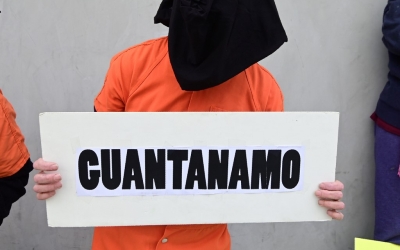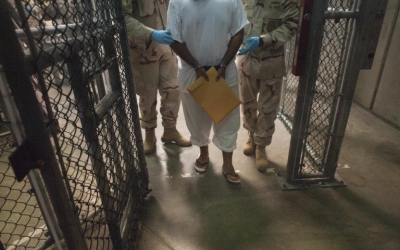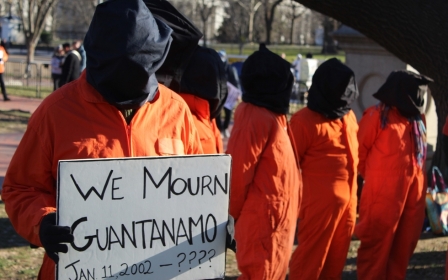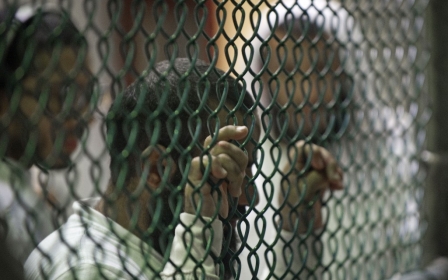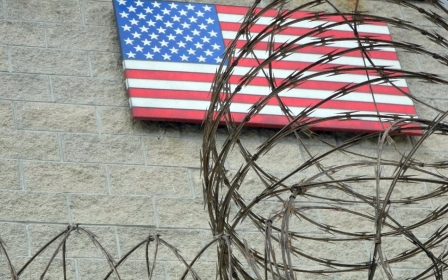Biden administration says it aims to close Guantanamo Bay by end of term
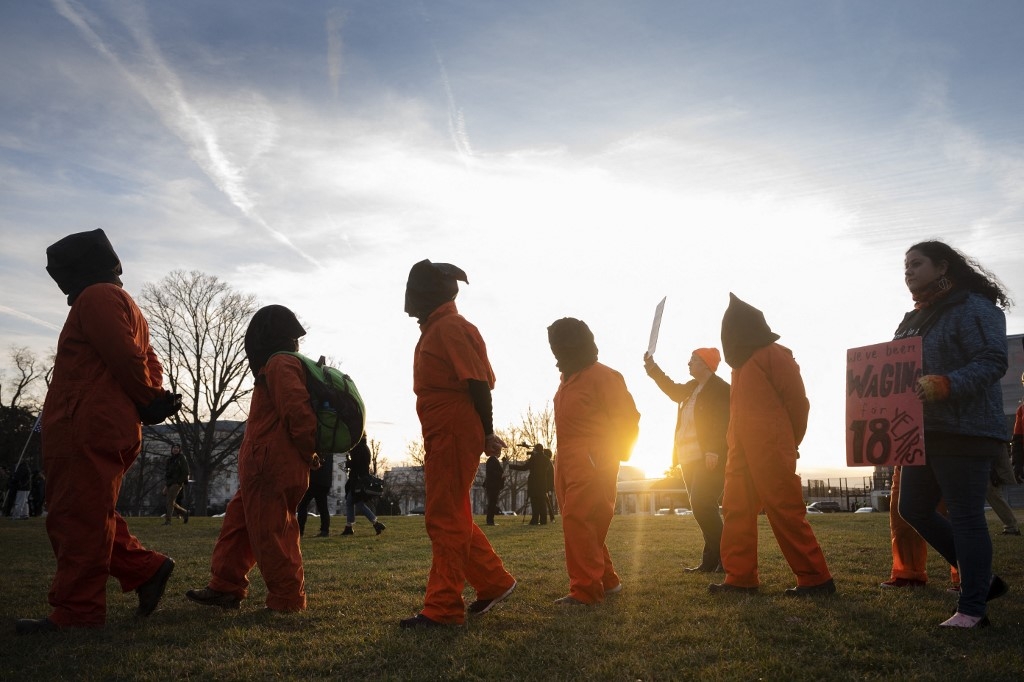
The Biden administration has launched a formal review of the US military prison camp in Guantanamo Bay with the intention of closing the facility, the White House has said.
Speaking to reporters on Friday, White House Press Secretary Jen Psaki said closing the high-security prison camp before Biden leaves office "certainly is our goal and our intention".
New MEE newsletter: Jerusalem Dispatch
Sign up to get the latest insights and analysis on Israel-Palestine, alongside Turkey Unpacked and other MEE newsletters
The Obama-Biden administration had vowed to close Gitmo during both presidential campaigns but failed to do so.
In a bid to revive that initiative, White House aides have launched a formal review process that could see an executive action take place in the coming weeks or months, two people familiar with the matter told Reuters.
In addition, National Security Council (NSC) spokeswoman Emily Horne told the news agency that her office was also looking into ways to close the offshore prison.
"We are undertaking an NSC process to assess the current state of play that the Biden administration has inherited from the previous administration, in line with our broader goal of closing Guantanamo," Horne said.
"The NSC will work closely with the Departments of Defence, State, and Justice to make progress toward closing the Gitmo facility, and also in close consultation with Congress," she continued.
Reviving Obama's transfer policy?
The Biden administration could immediately move to reinstate, in some form, Obama's Guantanamo closure policy, which resulted in the transfer of 197 men from the facility to their home or third-party countries via a review board process.
At the end of the Obama administration, 41 men were left at the prison camp, seven of whom were cleared for release but were not transferred before the Trump administration took over.
Former president Donald Trump, however, did not want further releases to take place at the prison camp and closed the office that facilitated such transfers. During his four years in office, only one man who was cleared under the Obama administration - a Saudi citizen - was released.
In addition to the six men already cleared, 25 others who have not been charged or tried, despite more than a decade of detention, qualify for a possible release under the review board mechanism, as Biden is expected to renew the shuttered office.
The process of being approved for transfer by the review board is complicated and currently requires an inmate to be cleared by six federal agencies: the departments of State, Defence, Justice and Homeland Security, as well as the Office of the Director of National Intelligence (ODNI) and the Joint Chiefs of Staff.
The involvement of ODNI, which includes the Central Intelligence Agency (CIA), has been controversial, as the agency oversaw the alleged torture of many of those held at Gitmo.
Gitmo's war court
The two men who have been convicted and the seven who are currently charged with war crimes cannot be processed through the board, but legal scholars have argued that the men can be tried and imprisoned in federal facilities.
Guantanamo's war court has been notoriously slow in attempting to try prisoners held at the prison camp.
The five men charged with taking part in the 9/11 attacks were captured in 2002 and 2003 and held incommunicado in a secret CIA prison network where they were tortured before being transferred to Guantanamo. The defendants were arraigned in 2012.
Nearly 10 years later, the trial has yet to complete pre-trial proceedings and a military jury has yet to be established.
'You can't move forward without dealing with the past. And that includes Guantanamo'
- J Wells Dixon, CCR
Due to the coronavirus pandemic, it is estimated that the earliest trial proceedings at the war court could begin is 9 August, though that timeline could very well be pushed further.
Just before Biden was sworn in, J Wells Dixon, a senior staff attorney at the New York-based Center for Constitutional Rights, told Middle East Eye that the new administration should move to try the men being charged in federal court instead of the war court. The rest should be released to their home country, he said.
"[The Biden] administration is going to face the choice: do we want to hold people for life without charge in a military prison, or do we want to transfer them and close the prison?" Wells Dixon said at the time.
"I do think closing Guantanamo, and, in particular, transferring the cleared men is going to be a priority for Biden. And the reason I say that is because it certainly seems to me that there is broad interest in turning the page on the post-9/11 era and moving the country forward.
"I think if we learned anything from the Obama administration, it is that you can't move forward without dealing with the past. And that includes Guantanamo."
Middle East Eye delivers independent and unrivalled coverage and analysis of the Middle East, North Africa and beyond. To learn more about republishing this content and the associated fees, please fill out this form. More about MEE can be found here.


